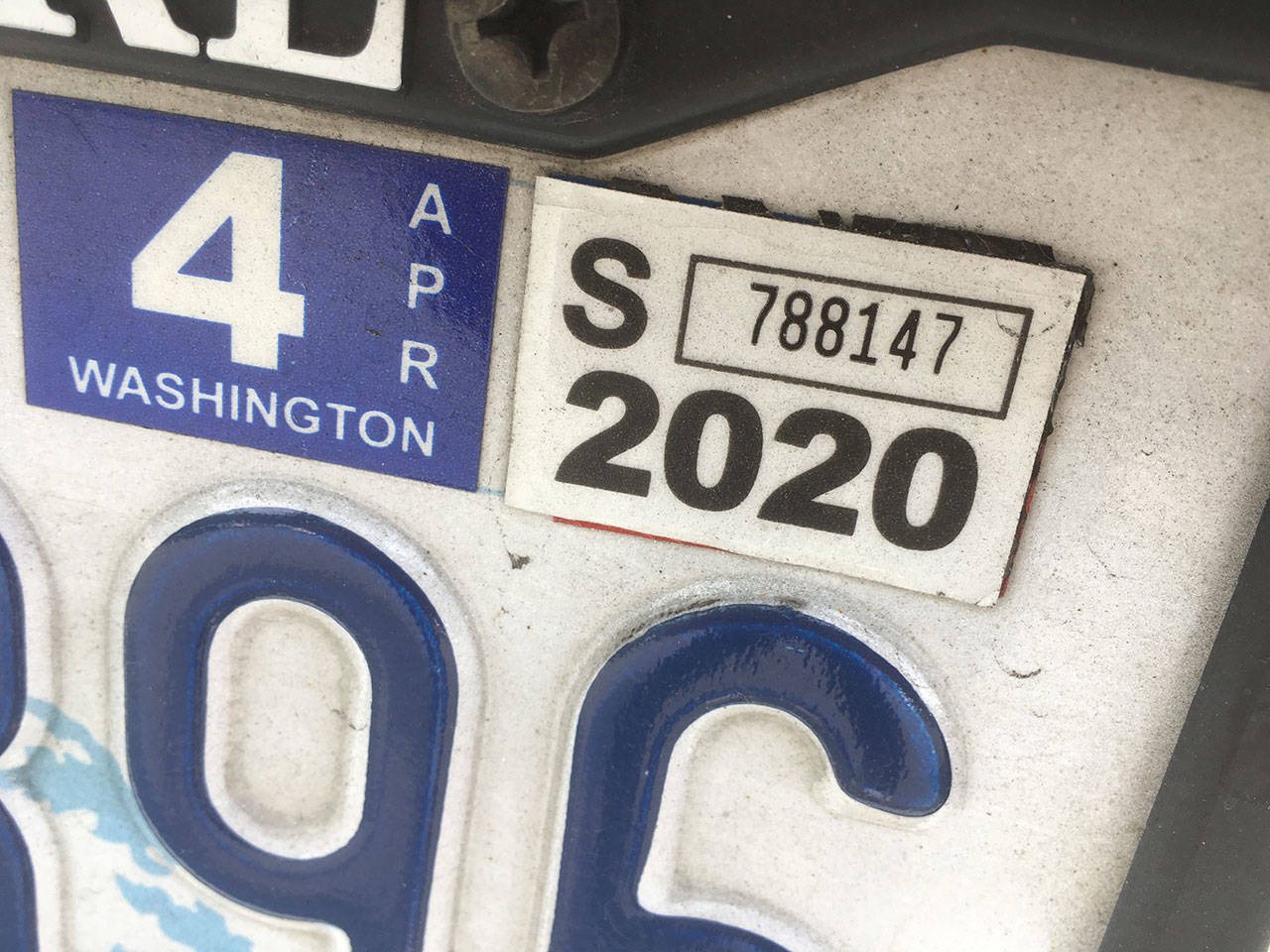OLYMPIA — Sound Transit leaders plan to press state lawmakers in 2020 to change the law on how car tabs are calculated.
Acknowledging the frustration of voters expressed through Initiative 976, the board of directors of the regional transit authority agreed last week to ask legislators to ditch a two-decade-old depreciation schedule in favor of one that would base annual assessments on the “true current value” of a vehicle.
“I believe it is absolutely critical that this board take clearer action and direction to work with the Legislature to resolve this,” said Pierce County Executive Bruce Dammeier, who pushed the other locally elected politicians to take a more activist position.
In previous years, board members voiced openness to rejiggering the motor vehicle excise tax formula if it didn’t impede the agency’s ability to carry out voter-approved expansion plans. The resolution passed last week conveys a greater urgency to get something done while still protecting the revenue stream.
Voters statewide passed Initiative 976 to lower car tab costs and erase the motor vehicle excise tax collected by Sound Transit. While it failed within the transit district, it did pass in portions of the district in Snohomish County.
“We know we have to look for solutions. We have to double down on our efforts,” said Everett City Councilman Paul Roberts, one of three Snohomish County members on the Sound Transit board. “We hear the concerns about the valuation system but also know there is real concern to meet the timelines” for expanding light rail.
The leaders of the Senate and House transportation committees, however, aren’t sure anything can be done during the two-month legislative session that starts Jan. 13.
One reason is that they will be focused on the potential effects of Initiative 976, which, if upheld by courts, will reduce annual vehicle registration fees to $30 and carve a roughly $450 million hole in the state transportation budget.
“My first priority is dealing with the impacts to the state of that initiative,” said Rep. Jay Fey, D-Tacoma, who heads the House transportation panel. “I won’t say there isn’t a chance, but there isn’t a lot of time to work something out.”
Lawmakers failed to come up with solutions in each of the past three legislative sessions. Part of it was politics. And part of it was the difficulty of finding a revenue-neutral solution.
In 2018, Sen. Steve Hobbs, D-Lake Stevens, who heads the Senate transporation panel, came up with two possible solutions but couldn’t get either passed.
One idea would have redirected money to Sound Transit from an account established to support educational services for young people who are low-income, homeless or in foster care in King, Pierce and Snohomish counties. It was empty then but it isn’t now.
When the House rejected that idea, Hobbs cobbled together a few ways to keep Sound Transit financially whole, including deferring payment to the state of some fees and and not charging Sound Transit for leasing right-of-way for construction of projects.
“I’m not hopeful. I’ve tried before and hit a brick wall,” Hobbs said Friday. “We can try again but I’ll probably run into a brick wall again.”
Anger with car tab costs stems from the 2016 passage of Sound Transit 3, a 25-year, $54 billion expansion.
It hiked the motor vehicle excise tax collected by Sound Transit from 0.3 percent to 1.1 percent. It also raised the local sales tax and established a new annual property tax within the transit district boundaries.
When the excise tax increase took effect in March 2017, the cost of car tabs surged and caught many vehicle owners unaware.
Frustration has grown as many learned that a contributing factor to the surge is Sound Transit’s use of a depreciation schedule from 1999 in its calculations. It overvalues newer vehicles.
That schedule is tied to the manufacturer’s suggested retail price and shows a car’s value dips only 5% or 6% a year. The Department of Licensing updated its depreciation schedule in 2006. It shows a car loses 19% of its value after one year, 55% after five years.
By law, Sound Transit must switch to the newer schedule in 2029, when bonds from the first two phases of expansion are retired.
Hobbs said he thinks “we should just go to the 2006 valuation” now and find ways to offset the thinner stream of revenue for Sound Transit.
Meanwhile, at last week’s Sound Transit board meeting, Dammeier first proposed the board support switching to use Kelley Blue Book values. Others, including Snohomish County Executive Dave Somers, voiced concerns.
Seattle Mayor Jenny Durkan suggested “true current value,” which the board did not try to define.
“We have to work with the Legislature to fix this problem,” she said.
Dammeier agreed to the change. In the end, the resolution called for Sound Transit to work with lawmakers on solutions “to implement the public’s desire to base vehicle taxes on a vehicle’s true current value, in a revenue neutral manner.”
It passed unanimously.
Jerry Cornfield: 360-352-8623; jcornfield@herald net.com. Twitter: @dospueblos
Talk to us
> Give us your news tips.
> Send us a letter to the editor.
> More Herald contact information.

























